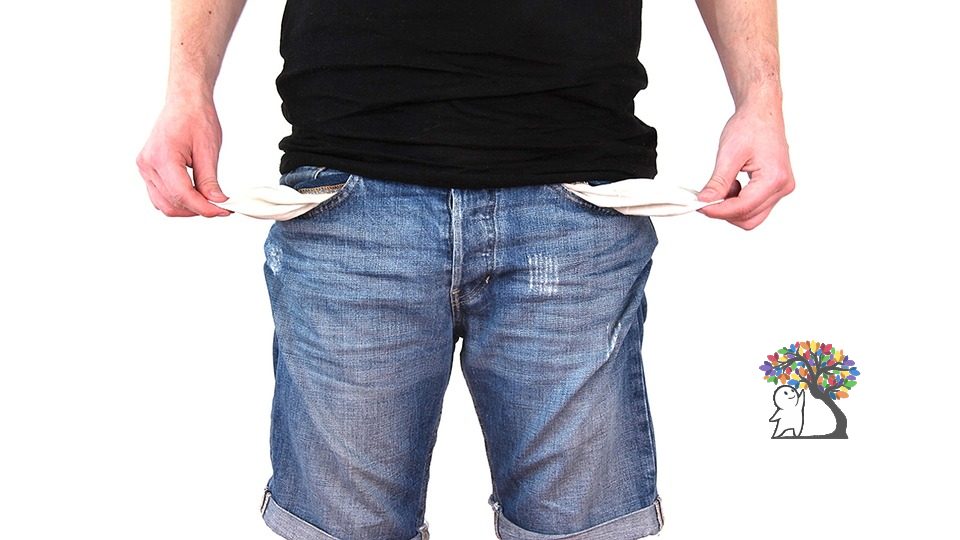Can Money Buy Happiness?

You’ve probably heard the saying, “money can’t buy happiness.” It means that money can only give you false and fleeting pleasures, not the true joy that makes life worth living.
There has been a lot of scientific research on the connections between income, emotional well-being and life satisfaction, so is the claim true or not? The answer is… “it depends.” Sorry to anyone looking for a simple answer, but psychology is not simple!
Let’s go into the details. Here are eight ways that money can – and can’t – buy happiness, according to psychological research.
This article is for educational purposes and is not a substitute for professional advice. While it is based on scientific research, we recognize that everyone is different and we advise you to always do what is right for you.
1) Escaping poverty will make you happier than collecting unnecessary wealth

Psychologists and economists have noticed that although U.S. incomes doubled from 1950 to 2000, emotional well-being obviously did not double as a result. International research has shown that the effects of rising income depend on how much you started off with.
Below an annual income of about 75,000 U.S. dollars, more money does create happiness because it allows you to escape poverty. Those growing up in poverty tend to develop permanent neurological deficits, significant stress levels and a higher risk of mental and physical illnesses. Covering basic necessities and debt helps to eliminate these issues, ease anxiety levels and increase life satisfaction.
Above an annual income of 75,000 U.S. dollars, the effect of money on happiness is weaker. If you have enough to live comfortably, how you spend your money has a bigger impact on your emotional well-being than the amount you have to spend. Experiments have tracked participants’ happiness levels and uncovered what brings the most happiness to their lives. Turns out the purchases that really make people happy are very different from what most people predict.
2) Buying experiences will make you happier than material objects

Have you ever bought yourself an item just to raise your mood? Above the poverty line, buying a material object increases happiness only briefly. The effect wears off rapidly, leaving you feeling the same as before. However, buying an experience like visiting the zoo, eating at a restaurant or attending a concert typically has a more long-term effect on raising happiness. Experiences add novelty to your life because every event is different. They bring people together and help social bonding. They create memories and stories that bring joy for the rest of our lives. In particular, challenging experiences like mountain-climbing can become life-defining moments.
3) Giving to others will make you happier than spending on yourself

Humans are intrinsically social in nature, so making others happy will also make you happy. Studies across Canada and Uganda gave participants some money and either assigned them to spend it on themselves or give it to a charity. Individuals predicted that spending on themselves would be the happier option, but the results were the opposite. Those who gave to charity had a higher happiness level, even though they donated by force and not by choice. Interestingly, brain scans showed that giving money away activated the brain areas typically associated with receiving rewards.
4) Buying many small pleasures will make you happier than a few large ones

Are you saving up for a big vacation? You might want to think again. Research shows that the frequency of happy experiences is more important than the intensity. In other words, it will make you happier to eat two 6-ounce cookies on different days than to eat a single 12-ounce cookie all at once. Buying and savoring the little things in life can increase variability in our lives, deepen everyday satisfaction and keep our moods lifted constantly. So instead of spending money on one big vacation, a happier idea would be to spend it on regular small visits with friends to try new dishes.
5) Buying only what you can afford will make you happier than paying later

Research shows that the “consume now, pay later” ethos leaves you paying in happiness as well. Impatient purchasing behavior like racking up credit card debts or failing to save for retirement leaves people feeling much worse off in the long-run. For those who engage in impulsive buying, money buys unhappiness. You can avoid these negative consequences by living within your means, which has an extra advantage. When you don’t get what you want when you want it, the wait can give you free enjoyment. Research shows that anticipating a future purchase makes you happy, sometimes even more than the purchase itself!
6) Buying things that save time will make you happier than things that add stress

If you consider buying a vacation home by a lake, what images come to mind? Most people think of fishing, sunsets and quiet family moments. But what about the biting insects, maintenance, flooding, complaining children and long tiring drives? Studies show that when people try to decide what will make them happy, they overlook the fact that having more time and less stress leads to greater happiness than having more money. One of the best ways to increase your happiness is to invest money in services and devices which free up time. Similarly, it is best to avoid purchases which will add time-draining inconveniences to your life. It’s particularly misguided to buy the cheapest option just because it’s the cheapest. The small satisfaction boost from cost saving isn’t worth the huge stress boost from dealing with low quality goods that break quickly and add inconvenience to your life. The cheapest deal is not necessarily the best deal!
7) Buying things that match your personality will make you happier than things that don’t

Is everyone happy with buying the same things? A University of Cambridge study analyzed 76,000 bank transaction records and found that people are happier when their purchases match their individual personality. For example, extroverted people are satisfied with the experience of visiting a bar, while introverted people are satisfied with the experience of reading books. Turns out, the personality fit of purchases has a greater effect on life satisfaction than the amount spent on the purchases.
8) Being satisfied with your income will make you happier than chasing social status

Other research suggests that happiness doesn’t come from the amount of money you have, it comes from the amount of money you wish you have. People perceive their wealth by comparing it to what they see around them, and become dissatisfied if they feel like they’re losing out. This dissatisfaction is more extreme in societies with a high level of income inequality or high media consumption. No matter how much someone’s income increases, they can always see others who are more well off, so their material aspirations are always out of reach in a never-ending cycle. To break this cycle, remember that happiness isn’t having what you want, it’s wanting what you have. As long as you’re not struggling to make ends meet, money can always make you happy if you just choose to be happy with the money you currently have.
So there you have it, eight ways that money can – and can’t – buy happiness. Did you find any of these tips interesting and useful? Let us know in the comments below. And don’t forget to like and share this article if you think it’s helpful. The studies and references used are listed in the description below.
References
Bruni, L., & Stanca, L. (2006). Income aspirations, television and happiness: Evidence from the world values survey. Kyklos, 59(2), 209-225.
Dunn, E. W., Gilbert, D. T., & Wilson, T. D. (2011). If money doesn’t make you happy, then you probably aren’t spending it right. Journal of Consumer Psychology, 21(2), 115-125.
Hershfield, H. E., Mogilner, C., & Barnea, U. (2016). People who choose time over money are happier. Social Psychological and Personality Science, 7(7), 697-706.
Kahneman, D., & Deaton, A. (2010). High income improves evaluation of life but not emotional well-being. Proceedings of the National Academy of Sciences, 107(38), 16489-16493.
Killingsworth, M. A. (2021). Experienced well-being rises with income, even above $75,000 per year. Proceedings of the National Academy of Sciences, 118(4).
Kushlev, K., Dunn, E. W., & Lucas, R. E. (2015). Higher income is associated with less daily sadness but not more daily happiness. Social Psychological and Personality Science, 6(5), 483-489.
Lee, J. C., Hall, D. L., & Wood, W. (2018). Experiential or material purchases? Social class determines purchase happiness. Psychological Science, 29(7), 1031-1039.
Lyubomirsky, S., Sheldon, K. M., & Schkade, D. (2005). Pursuing happiness: The architecture of sustainable change. Review of general psychology, 9(2), 111-131.
Matz, S. C., Gladstone, J. J., & Stillwell, D. (2016). Money buys happiness when spending fits our personality. Psychological science, 27(5), 715-725.
Ong, Q., Theseira, W., & Ng, I. Y. (2019). Reducing debt improves psychological functioning and changes decision-making in the poor. Proceedings of the National Academy of Sciences, 116(15), 7244-7249.
Young, E. (2019, December 3). The Psychological Impacts of Poverty, Digested. The British Psychological Society Research Digest. https://digest.bps.org.uk/2019/12/03/the-psychological-impacts-of-poverty-digested/
Yu, Z., & Wang, F. (2017). Income inequality and happiness: An inverted U-shaped curve. Frontiers in psychology, 8, 2052.



Responses